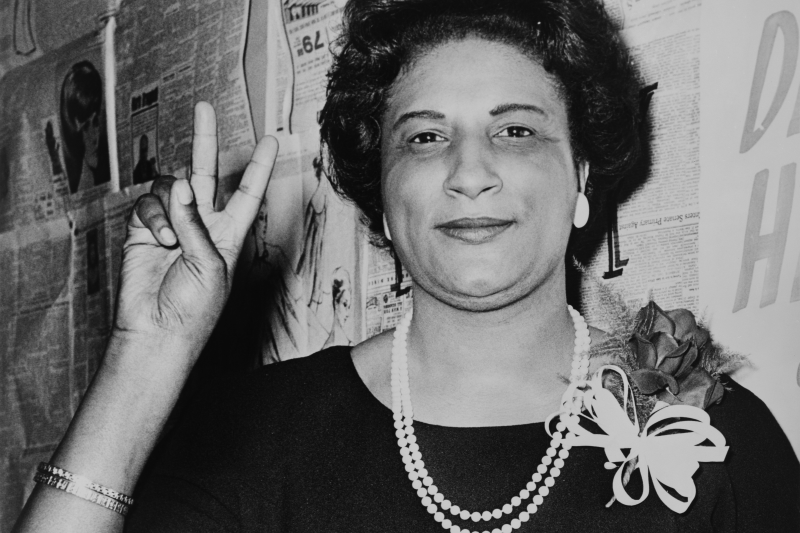In September 1966, President Lyndon B. Johnson appointed Constance Baker Motley to the United States District Court for the Southern District of New York.
BY KEISHA BELL | Visionary Brief
Life has an interesting way of preparing her for purposeful work. In a world that is sometimes unkind, she builds strength through the process of using her experiences to enhance the lives of others.
Meet Constance Baker Motley, who lived from September 14, 1921, through September 28, 2005.
As a civil rights activist and lawyer, Baker (who was unmarried then) was an assistant attorney to Thurgood Marshall and helped with arguing the case Brown vs. Board of Education. In 1950, she wrote the original complaint for the case.
Note, Brown is a landmark United States Supreme Court case in which the Court declared state laws establishing separate public schools for black and white students to be unconstitutional.
Such an assignment for Baker seems fitting when considering how she acquired a keen sense of racial awareness. As a child, she attended integrated schools and, on several occasions, experienced racism. These experiences motivated her to become involved in civil rights. Inspired to attend law school, making history followed.
When Baker was hired by the NAACP Legal Defense and Educational Fund after graduating from Columbia Law School, she became its first female attorney. She was also the first African-American woman to argue a case before the U. S. Supreme Court. Her record before the Court was stellar.
Regularly, Baker litigated and advocated on behalf of desegregating schools, buses, and lunch counters. Her first case before the U. S. Supreme Court was Meredith vs. Fair. She won this milestone case. Its ruling resulted in James Meredith becoming the first African-American student to be admitted into the University of Mississippi.
On February 4, 1964, Baker (who by then married and known as Motley) became the first African-American woman elected to the New York State Senate. She made history again on February 23, 1965, when she became the first woman to be chosen as Manhattan Borough President Of Manhattan New York City.
The racism Motley experienced in her youth could have stunted her development, but instead, it motivated her. Some may have found her work to desegregate public spaces odd, especially when considering that she was a victim of racism at such a young and impressionable age. Instead, it sharpened her awareness, resulting in her being a brilliant legal mind on the issue.
Motley was not done making history. In September 1966, President Lyndon B. Johnson appointed her to the United States District Court for the Southern District of New York. This appointment made her the first African-American woman federal judge. She eventually served a term as chief judge.
While on the bench in 1978, Motley ruled that a female reporter must be allowed into the Major League Baseball locker. This was a revolutionary decision for women in sports broadcasting.

Keisha Bell
Just like with all of us, Motley’s life experiences had a significant factor in her development. Furthermore, Motley’s mentality about her experiences was key in her process of preparation for purposeful work. The mind is a powerful thing. How is it preparing you?
Keisha Bell is an attorney, author, and public servant. www.emergingfree.com
Post Views:
5,350
